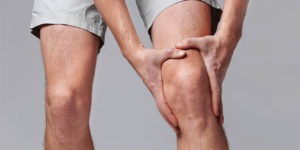 Although there are many kinds of arthritis, the most common type of arthritis, osteoarthritis (OA), frequently affects the knee. The bones of a normal knee joint have a coating of cartilage over them which acts as a cushion between the bones. In knee arthritis, the cartilage starts to wear down. As the “wear and tear” of the cartilage gets worse, the knee becomes stiff and painful with activity. In most people knee arthritis gradually gets worse over months to years.
Although there are many kinds of arthritis, the most common type of arthritis, osteoarthritis (OA), frequently affects the knee. The bones of a normal knee joint have a coating of cartilage over them which acts as a cushion between the bones. In knee arthritis, the cartilage starts to wear down. As the “wear and tear” of the cartilage gets worse, the knee becomes stiff and painful with activity. In most people knee arthritis gradually gets worse over months to years.
Who Gets Knee Arthritis?
Knee arthritis affects people of all races and both sexes. Most often, it occurs in people age 40 and above. However, it may occur sooner if there are other risk factors (things that increase the chance of getting osteoarthritis). The major risk factors include older age, having family members with osteoarthritis, and being overweight. Injuries to the knee, such as a meniscal tear, often leads to additional wear of the cartilage and can result in arthritis.
What are The Symptoms of Knee Arthritis?
The primary symptom is pain which is worse with activity and is relieved with rest. Knee arthritis can make it difficult to do many everyday activities, such as walking or climbing steps. The knee often feels stiff and it may be tender. Swelling may occur due to an increase in fluid in the joint (commonly called “water on the knee”). Boney enlargement may occur because of bone spurs ( called osteophytes) around the joint. There may be a crunching sound or grating feeling (called crepitus) with joint movement. Some patients note an increase in symptoms when the weather is cold and damp.
How is Knee Arthritis Diagnosed?
There is no blood test for osteoarthritis. Instead, the diagnosis is based on the patient’s description of their symptoms, a physical examination of the joint, and imaging tests of the knee with x-rays. In some cases, imaging with MRI and/or ultrasound may be helpful to determine the severity of the disease or to exclude other possible joint problems.
How is Knee Arthritis Treated?
There is no known cure for osteoarthritis, but there are several effective therapies. The primary goals are to reduce pain, improve function, and slow disease progression. Because the knee is a weight bearing joint, weight loss and physical therapy exercises are especially important. Assistive devices, such as a knee brace or a cane, may be helpful. Medications are often recommended including acetaminophen (Tylenol) or an anti-inflammatory such as ibuprofen (Advil, Motrin). Joint injections with a steroid (a cortisone shot) or with a lubricant (called hyaluronic acid) may give pain relief lasting weeks to months. If medical treatment does not provide enough pain relief or there is a major loss of function, surgery may be considered.
Quick Points to Remember
- Osteoarthritis (OA) is the most common form of knee arthritis.
- There is no cure for the disease, but there are therapies that can help manage pain and keep people active.
- Most patients can be managed successfully without surgery.
*For persistent joint pain that is interfering with your daily activities, see a rheumatologist to make the correct diagnosis and begin the proper treatment.
Contact Us (859-331-3100) For More Information to Request an Appointment
—
 About Tristate Arthritis and Rheumatology
About Tristate Arthritis and Rheumatology
Tristate Arthritis and Rheumatology is first and largest Rheumatology practice in the Northern Kentucky area. Founded by Dr. Arthur Kunath in 1986, our rheumatology practice now consists of six doctors who are board certified in both Internal Medicine and Rheumatology and a Physician Assistant. Patients see one doctor (except in emergencies), thereby assuring continuity of care and an individualized doctor-patient atmosphere giving the physician the ability to establish personalized and detailed relationships. Our doctors have received numerous awards, including being listed as “Top Doctors” in Cincinnati Magazine, receiving the Patient’s Choice Award, the Most Compassionate Doctor Award, and the American College of Rheumatology’s “My Doc Rocks” award.
>> Learn More


